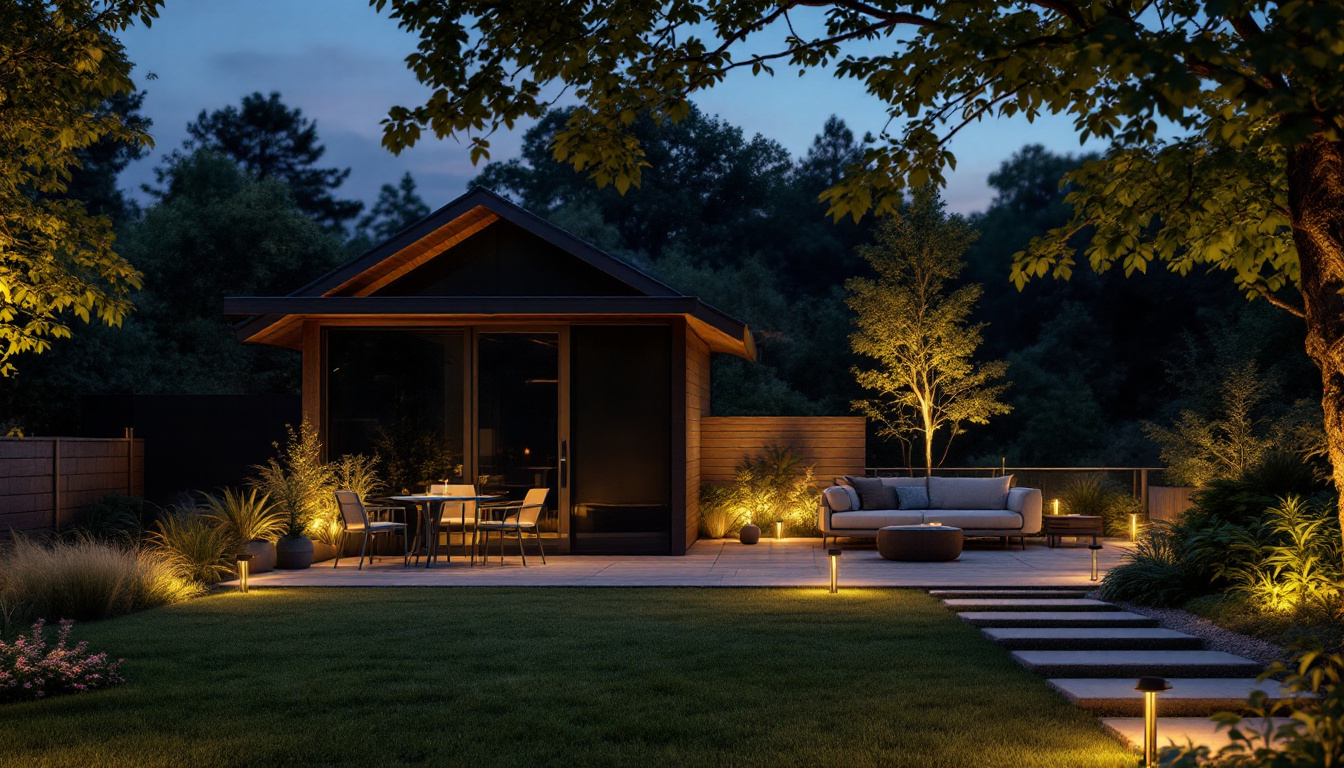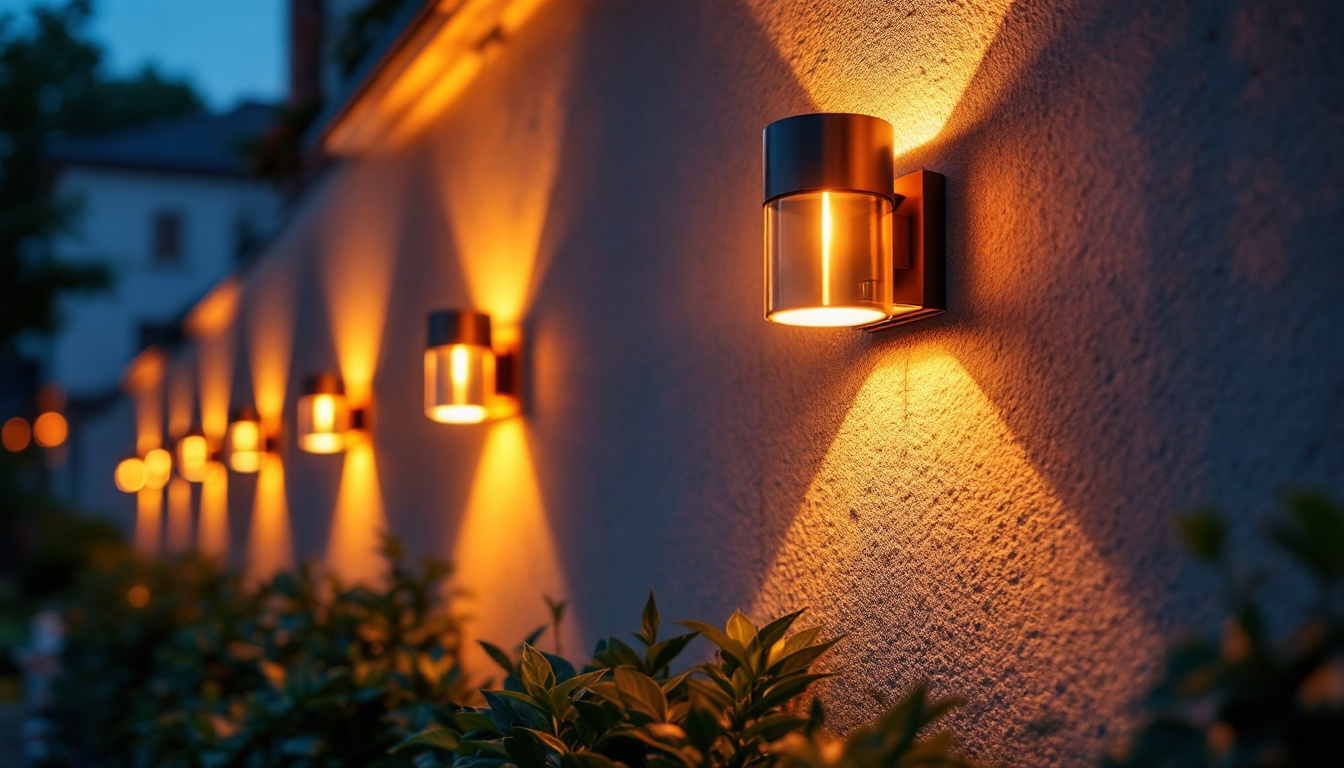

As the demand for sustainable energy solutions continues to rise, solar lighting has emerged as a popular choice for outdoor spaces. For lighting contractors, understanding the intricacies of solar lighting systems is essential to provide clients with effective, reliable, and environmentally friendly solutions. This article explores best practices for lighting contractors when it comes to solar outdoor lighting, ensuring that projects are not only successful but also meet the evolving needs of customers.
Before delving into best practices, it is crucial for lighting contractors to grasp the basics of solar lighting technology. Solar lights operate by converting sunlight into electricity through photovoltaic cells. This electricity is then stored in batteries for use when the sun goes down, allowing for illumination without the need for traditional electrical wiring. This independence from the grid not only reduces installation costs but also promotes sustainability, making solar lighting an attractive option for environmentally conscious consumers.
A typical solar lighting system consists of several key components: solar panels, batteries, LED lights, and controllers. Each of these elements plays a vital role in the overall functionality and efficiency of the system. For instance, the quality of the solar panel directly affects how much energy is harvested, while the battery capacity determines how long the lights will stay illuminated at night. Additionally, the controller manages the power flow, ensuring that the lights operate optimally based on available sunlight and battery levels.
Moreover, the LED lights used in solar fixtures are designed to be energy-efficient, offering high brightness with minimal power consumption. Understanding these components allows contractors to make informed decisions about product selection and system design. It is also important to consider the durability and weather-resistance of these components, as they must withstand various environmental conditions, from intense sunlight to heavy rain, ensuring longevity and reliability throughout their lifespan.
There are various types of solar lighting solutions available, each suited for different applications. Pathway lights, floodlights, and decorative garden lights are just a few examples. Each type serves unique purposes and requires specific considerations during installation. For instance, the placement of pathway lights should be strategic to maximize visibility while complementing the landscape design, whereas floodlights may need to be mounted at higher elevations to cover larger areas effectively.
Pathway lights, for instance, are ideal for illuminating walkways and driveways, enhancing safety and aesthetics. Floodlights, on the other hand, provide broader illumination for larger areas, such as parking lots or sports fields. Understanding the specific needs of a project will help contractors choose the right type of solar lighting solution. Additionally, decorative garden lights can add a touch of elegance to outdoor spaces, often featuring artistic designs that enhance the overall ambiance. The versatility of solar lighting solutions allows for creative applications, from enhancing security in commercial spaces to creating inviting atmospheres in residential gardens, making them a valuable addition to any lighting project.
Proper site assessment and planning are critical steps in the solar lighting installation process. A thorough evaluation of the site will ensure that the chosen lighting solutions will perform optimally and meet the client’s expectations.
One of the most important factors to consider is the amount of sunlight the installation site receives. Areas with ample sunlight will allow solar panels to charge effectively, while shaded locations may lead to inadequate energy storage and reduced performance. Conducting a sunlight exposure analysis can help contractors identify the best locations for solar lights.
Additionally, seasonal changes should be taken into account. Some areas may experience varying sunlight availability throughout the year, which can impact the performance of solar lights. Understanding these dynamics will enable contractors to make informed choices regarding the placement and type of solar lighting systems.
Engaging with clients to understand their specific needs and preferences is essential. This includes discussing the intended use of the lighting, desired brightness levels, and aesthetic considerations. By aligning the project with the client’s vision, contractors can ensure a satisfactory outcome.
Furthermore, discussing maintenance expectations and durability can help set realistic goals for the lifespan of the solar lighting system. Clients should be informed about the importance of regular upkeep to maximize the efficiency and longevity of their investment.
Once the planning phase is complete, the next step is installation. Adhering to best practices during this stage is vital to ensure the solar lighting systems function as intended.
For solar lights to operate efficiently, solar panels must be positioned correctly. Ideally, panels should face south (in the northern hemisphere) to capture the maximum amount of sunlight throughout the day. Additionally, they should be installed at an angle that optimizes solar exposure based on the geographical location.
Contractors should also consider potential obstructions, such as trees or buildings, that may cast shadows on the panels. Ensuring that solar panels are free from obstructions will enhance their performance and energy collection capabilities.
Properly securing and wiring components is crucial for the longevity and safety of the solar lighting system. All connections should be weatherproofed to prevent damage from moisture and extreme temperatures. Using high-quality connectors and cables will also reduce the risk of electrical failures.
Additionally, it is essential to follow the manufacturer’s guidelines during installation. Each solar lighting product may have specific requirements that, if overlooked, could lead to performance issues or void warranties.
Even though solar lighting systems are designed to be low-maintenance, periodic checks are necessary to ensure optimal performance. Contractors should educate clients about the importance of maintenance and provide guidelines on how to care for their solar lights.
Dust, dirt, and debris can accumulate on solar panels, reducing their efficiency. Regular cleaning of the panels is essential to maintain their energy-collecting capabilities. Contractors can recommend a cleaning schedule based on the local environment, advising clients to use a soft cloth and mild soap to avoid scratching the surface of the panels.
In areas with heavy rainfall or dust storms, more frequent cleaning may be necessary. Educating clients about these factors will help them understand the importance of keeping their solar panels clean for optimal performance.
Contractors should be prepared to troubleshoot common issues that may arise with solar lighting systems. Some frequent problems include dimming lights, flickering, or lights not turning on at all. These issues can often be traced back to battery problems, insufficient sunlight exposure, or faulty connections.
Providing clients with a troubleshooting guide can empower them to resolve minor issues independently, while also knowing when to contact a professional for assistance. This proactive approach can enhance client satisfaction and trust in the contractor’s expertise.
As solar lighting technology continues to evolve, educating clients about its benefits is essential. Many clients may be unaware of the advantages that solar lighting offers compared to traditional lighting solutions.
One of the most significant benefits of solar lighting is the potential for cost savings. By utilizing solar energy, clients can reduce their electricity bills, as solar lights do not require an external power source. Additionally, the low maintenance requirements of solar systems can lead to further savings over time.
Moreover, the energy efficiency of solar lights contributes to environmental sustainability. By reducing reliance on fossil fuels and lowering carbon footprints, clients can feel good about their investment in solar technology.
Solar lights can significantly enhance safety and security in outdoor spaces. By illuminating pathways, driveways, and entrances, they help prevent accidents and deter potential intruders. Educating clients about these safety benefits can encourage them to consider solar lighting solutions for their properties.
Furthermore, the availability of motion-sensor solar lights adds an extra layer of security, as they can automatically illuminate when movement is detected, providing an effective deterrent against unwanted visitors.
The solar lighting industry is continuously evolving, with new technologies and trends emerging regularly. For lighting contractors, staying informed about these developments is crucial to remain competitive and offer clients the best solutions.
Innovations in solar lighting technology, such as smart solar lights and advanced battery systems, are transforming the market. Smart solar lights can be controlled remotely via smartphone apps, allowing users to adjust brightness levels, set timers, and monitor energy usage.
Additionally, advancements in battery technology are leading to longer-lasting and more efficient energy storage solutions. Contractors should keep an eye on these trends to provide clients with cutting-edge products that meet their needs.
Participating in industry events, workshops, and training sessions can provide valuable insights and networking opportunities for lighting contractors. Engaging with peers and industry leaders can foster collaboration and knowledge sharing, ultimately enhancing the quality of services offered.
Moreover, joining professional organizations dedicated to solar energy and lighting can provide access to resources, research, and best practices that can further elevate a contractor’s expertise.
As the demand for solar lighting solutions continues to grow, lighting contractors have a unique opportunity to provide clients with sustainable and efficient outdoor lighting options. By understanding solar technology, conducting thorough site assessments, adhering to installation best practices, and staying informed about industry trends, contractors can enhance their service offerings and contribute to a greener future.
Ultimately, the success of solar lighting projects hinges on a contractor’s ability to educate clients, troubleshoot issues, and maintain systems effectively. By implementing these best practices, lighting contractors can not only meet client expectations but also position themselves as leaders in the solar lighting industry.
Ready to elevate your solar lighting installations with the best in the business? Look no further than LumenWholesale, where we provide lighting contractors like you with top-quality, spec-grade lighting products at unbeatable wholesale prices. Our commitment to cutting out the middleman means you get superior lighting without the inflated markups, and our extensive selection is designed to meet the highest industry standards. With LumenWholesale, you’ll find reliable, high-performance lighting for every project, and with free shipping on bulk orders, you’re guaranteed premium lighting at the best value — without hidden fees or compromises. Don’t miss out on the perfect blend of quality, affordability, and convenience. Wholesale Lighting at the Best Value is just a click away!

Discover innovative hacks for smart lighting contractors to enhance outdoor spaces with solar exterior wall lights.

Discover the charm and efficiency of vintage LED bulbs in this insightful guide tailored for lighting contractors.

Discover the key differences between high bay and low bay lighting and their impact on lighting contractors’ profitability.

Discover the essential insights every lighting contractor needs to know about outdoor LED lights.
Get notified when NEW deals are released.
Optimize your budget with wholesale discounts.
Only top-quality, specification-grade lighting products.
No additional costs at checkout - what you see is what you pay.
We understand the unique needs of contractors.